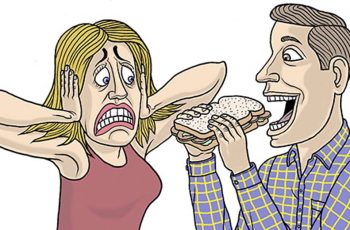Hello! If you’re struggling with coughing up phlegm, you’re not alone. This common issue can be uncomfortable and disruptive to everyday life. But don’t worry, there are effective home remedies that can help alleviate this problem.
When it comes to managing phlegm and mucus, natural cough expectorants and homemade cough remedies can provide relief. It’s important to understand that mucus serves a protective purpose in certain body parts, but excess mucus can be caused by infections, allergies, and smoking.
To effectively relieve phlegm, there are a few key strategies you can try. Let’s delve into them:
Home Remedy for Coughing Up Phlegm
- Drinking plenty of fluids can help thin mucus and reduce congestion.
- Keeping the air moist, such as using a cool mist humidifier, can promote better sleep and relieve chest congestion.
- Applying a warm, wet washcloth to the face can provide soothing relief for sinus headaches and pressure.
- Elevating the head while sleeping prevents mucus from collecting in the throat, reducing discomfort caused by phlegm.
- Avoid suppressing coughs, as they help in keeping secretions out of the lungs and throat.
Now that you have a better understanding of these effective home remedies, you can take steps to manage your phlegm and improve your overall well-being. Remember to always seek medical attention if your symptoms persist or worsen.
Keeping the Air Moist
Dry air can irritate the nose and throat, causing more mucus to form. This can worsen chest congestion and lead to increased phlegm production. To help alleviate these symptoms, it is essential to keep the air moist.
A great way to maintain moisture in the air is by using a cool mist humidifier in your bedroom. The cool mist will help hydrate the nasal passages and throat, providing relief from chest congestion and reducing phlegm. By keeping the air moist, you can prevent mucus from drying out and promote better respiratory health.
Having a cool mist humidifier in the bedroom not only helps with chest congestion but also promotes better sleep and clear breathing. It is an effective home remedy for anyone experiencing phlegm in the chest and coughing up mucus caused by dry air.
Drinking Plenty of Fluids
Staying hydrated is crucial when dealing with cough and phlegm. Drinking plenty of fluids can help thin mucus and promote its drainage, providing relief from throat congestion. It is important to consume a variety of fluids to maximize their benefits in clearing phlegm from the throat. Here are some natural remedies to clear phlegm and mucus:
- Water: Drinking an adequate amount of water throughout the day helps keep mucus thin and easy to expel. Aim to drink 8-10 glasses of water daily to stay hydrated.
- Herbal Tea: Warm herbal teas, such as peppermint, chamomile, and ginger tea, have soothing properties that can help relieve throat irritation and facilitate phlegm clearance.
- Warm Saltwater Gargles: Gargling with warm saltwater can help alleviate throat discomfort and assist in clearing mucus. Mix half a teaspoon of salt in a glass of warm water and gargle for 30 seconds before spitting it out.
Drinking plenty of fluids not only helps thin mucus but also keeps the body hydrated and supports overall respiratory health. Remember to consult a healthcare professional if symptoms persist or worsen.

Using Warm Washcloth and Elevating the Head
When dealing with a productive cough and phlegm, there are simple and effective home remedies that can provide relief. One of these remedies is using a warm washcloth to soothe a sinus headache and alleviate pain and pressure in the face. Applying a warm, wet washcloth to the affected area can help ease discomfort and promote relaxation.
Additionally, keeping the head elevated while sleeping can be beneficial in preventing mucus from collecting at the back of the throat. By using a few extra pillows or elevating the head of the bed, you can help reduce discomfort caused by phlegm and alleviate coughing symptoms.
To further enhance your sleeping comfort, using hypoallergenic pillows can be helpful. These pillows are designed to minimize allergens and irritants, promoting a better night’s sleep and relieving chest congestion caused by phlegm.
By utilizing these simple remedies, you can experience relief from productive cough and manage phlegm effectively.
Avoiding Suppressing Cough and Discreetly Getting Rid of Phlegm
Suppressing a cough may seem like a good idea when dealing with phlegm, but it can actually hinder the healing process. When we cough, our body is trying to expel irritants and secretions from our lungs and throat. By suppressing the cough, we prevent these substances from being cleared out, which can lead to further discomfort and complications.
Instead of suppressing the cough, it is important to find ways to manage and expel the phlegm effectively. One way to do this is by discreetly getting rid of the phlegm by spitting it out. Although it may not be the most glamorous option, it is a healthier alternative to swallowing the phlegm. When we swallow phlegm, it can irritate our digestive system and even lead to an upset stomach.
To discreetly expel phlegm, find a private area such as a bathroom or secluded corner, and use a tissue or napkin to cough into and spit out the phlegm. Make sure to properly dispose of the tissue afterward. By using this method, you allow your body to remove the phlegm without causing any harm or discomfort.
Using Saline Nasal Spray and Gargling Salt Water
Saline nasal sprays or rinses are effective remedies for managing mucus in the throat and sinuses. They help clear mucus and allergens from the nose and sinuses, providing relief from congestion and discomfort.
Gargling with salt water is another simple and natural technique to soothe an irritated throat and clear residual mucus. It can help reduce inflammation and irritation, providing temporary relief from coughing and throat discomfort.
Here’s a step-by-step guide to gargling with salt water:
- Add half a teaspoon of salt to a glass of warm water.
- Stir the mixture until the salt dissolves completely.
- Take a sip of the solution and tilt your head back.
- Gently gargle the salt water in your throat for about 30 seconds.
- Spit out the mixture and repeat as necessary.
Both saline nasal sprays and salt water gargles are easy to use and provide quick relief from mucus-related symptoms. Incorporating these remedies into your daily routine can help manage mucus in the throat and sinuses and promote better respiratory health.
Using Eucalyptus and Avoiding Smoking and Irritants
If you’re looking for natural remedies to relieve chest congestion and coughing up phlegm, consider incorporating eucalyptus products into your routine. Eucalyptus has been shown to reduce coughs and mucus, making it an effective herbal remedy for respiratory symptoms.
To experience the benefits of eucalyptus, you can apply eucalyptus oil directly to your chest or use it in a diffuser or bath. The aroma of eucalyptus can help clear your nose and provide relief from congestion. Its soothing properties can provide much-needed comfort when dealing with chest congestion and cough caused by phlegm.
Additionally, it’s crucial to avoid smoking and secondhand smoke if you want to manage phlegm and cough effectively. Smoking and exposure to secondhand smoke can increase mucus and phlegm production, exacerbating respiratory symptoms. By eliminating these factors from your environment, you can reduce the frequency and severity of chest congestion and persistent coughing.
Irritants such as chemicals, fragrances, and pollution can also contribute to excessive mucus production. To minimize mucus, try to avoid exposure to these irritants as much as possible. Creating a clean and healthy environment can go a long way in managing chest congestion and coughing up phlegm.
By incorporating eucalyptus and avoiding smoking and irritants, you can effectively tackle chest congestion and cough associated with phlegm. These natural remedies, along with other home treatment options, can provide relief and promote improved respiratory health.

Conclusion
When it comes to managing phlegm and cough, there are effective home remedies that can provide relief and improve symptoms. One of the key approaches is keeping the air moist, as dry air can irritate the nose and throat, leading to increased mucus production. Placing a cool mist humidifier in your bedroom can help keep the air moist and reduce chest congestion.
Drinking plenty of fluids is another important home remedy to thin mucus and promote its drainage. Staying hydrated with water, herbal tea, and warm saltwater gargles can help clear phlegm from the throat and ease the discomfort of coughing up mucus.
Using warm washcloths on the face and keeping the head elevated while sleeping can soothe sinus headaches, prevent mucus accumulation, and reduce the symptoms of phlegm cough. Additionally, avoiding suppressants and discreetly getting rid of phlegm by spitting it out can maintain the natural cough reflex and prevent mucus buildup in the lungs and throat.
Saline nasal sprays and gargling salt water are effective in clearing mucus from the nose and sinuses, while eucalyptus products can alleviate coughs and congestion. It is also crucial to avoid smoking and other irritants that can exacerbate mucus and phlegm production.
While these home remedies are often sufficient for milder cases of phlegm and cough, it is important to seek medical attention if the symptoms persist or worsen. By following these natural remedies, you can effectively manage phlegm and mucus, providing relief and improving your overall well-being.
FAQ
What are some effective home remedies for coughing up phlegm?
Some effective home remedies for coughing up phlegm include drinking plenty of fluids, using a saline nasal spray or rinse, and keeping the air moist. These remedies can help thin mucus, clear the nose and sinuses, and relieve chest congestion.
How can I keep the air moist to manage phlegm in my chest?
Keeping the air moist can help manage phlegm in the chest. You can place a cool mist humidifier in your bedroom to promote better sleep and keep the nose clear. This helps relieve chest congestion and reduces phlegm.
What are some natural remedies for cough with phlegm?
Drinking plenty of fluids can thin mucus and drain the sinuses, reducing congestion and cough caused by phlegm. Drinking water, warm herbal tea, and gargling with warm saltwater can also help clear phlegm from the throat and provide relief from coughing up phlegm.
How can using warm washcloth and elevating the head help with phlegm and cough?
Applying a warm, wet washcloth to the face can soothe a sinus headache and provide relief from pain and pressure caused by phlegm. Keeping the head elevated while sleeping can prevent mucus from collecting at the back of the throat and reduce discomfort caused by phlegm. These remedies are effective for chest congestion and cough caused by phlegm.
Is it important to suppress a cough or get rid of phlegm discreetly?
It is important not to suppress a cough as it helps in keeping secretions out of the lungs and throat. Discreetly getting rid of phlegm by spitting it out is healthier than swallowing it. These remedies help in expelling phlegm and reducing cough caused by mucus.
How can saline nasal spray and gargling salt water help manage phlegm and mucus?
Saline nasal sprays or rinses can clear mucus and allergens from the nose and sinuses. Gargling with salt water can soothe an irritated throat and help clear residual mucus. These remedies are effective for managing mucus in the throat and sinuses.
Can using eucalyptus and avoiding smoking and irritants help with phlegm and cough?
Using eucalyptus products such as eucalyptus oil on the chest or in a diffuser or bath can help reduce coughs and mucus. Avoiding smoking and secondhand smoke is important as it increases mucus and phlegm production. Avoiding irritants like chemicals, fragrances, and pollution can also reduce mucus production. These remedies are effective for managing chest congestion and coughing up phlegm.
What are some effective home remedies for phlegm cough?
Home remedies such as keeping the air moist, drinking plenty of fluids, using warm washcloths, keeping the head elevated, and avoiding suppressants can effectively manage phlegm and mucus. Saline nasal sprays, gargling salt water, using eucalyptus, and avoiding smoking and irritants are also effective in relieving chest congestion and coughing up phlegm. These natural remedies are often sufficient for treating mild cases of phlegm and mucus, and if symptoms persist or worsen, seeking medical attention is recommended.




